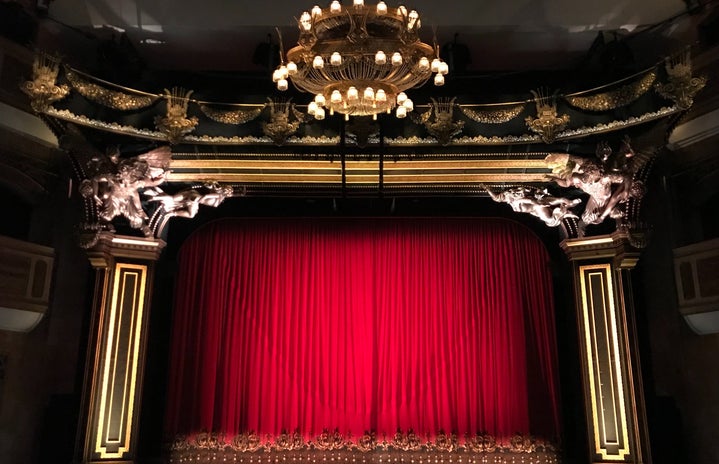Broadway is for the well-off. Tickets are expensive, and if someone doesn’t already live in New York, getting there costs even more. This means that Broadway audiences also skew older. Not because younger people aren’t interested, but because they can’t afford it.
Young people are the lifeblood of many of these Broadway shows. If only the people who could actually afford to see Hamilton were talking about it, it never would have become the cultural phenomenon that it did.

I never would have heard about a musical like Six if it hadn’t been for all of the fan art, quotes, and gifs that I’ve seen online. The musical itself seems like a walking contradiction. With its bright costumes and diverse cast of strong women, it seems like it was made to inspire and empower young girls and yet, those are the very people who are not very likely to be able to ever see a performance of the show on Broadway.
Instead, many people have had to turn to bootleg recordings of these shows. Many of these bootlegs exist on YouTube and are named with the unsuspicious label of the show title followed by “slime tutorial.”
Bootlegs, as much as no one in Broadway seems to want to admit it, are a large part of what keeps Broadway alive. Young people in the Midwest whose families couldn’t afford to go to New York—let alone a Broadway ticket with a price well into the triple digits—are able to watch these shows due to these bootlegs and post obsessively about them online where other people can be introduced to them.
And bootlegs, as much as they can introduce a person to a show, are not a valid substitute for going to a real live performance. The argument against bootlegs, namely that their existence takes away money and audience members these shows would otherwise be getting, is invalid. No one who can reasonably afford to see a Broadway show they are excited about is going to go with the poorly recorded version over something in-person.

The solution to making Broadway more accessible in a way that benefits Broadway and the audience is simple. Professionally record Broadway shows and sell them, whether that be individually or on a streaming service. The problem isn’t that people are unwilling to pay to see these shows in some form, it’s that they are unable to pay hundreds or even thousands of dollars to travel to see a show.
This change is starting to occur, albeit very slowly. With the pandemic, companies and entire industries have had to adapt to the constraints of “the new normal.” Broadway just…hasn’t. Even faced with an entire world that’s changing around them, Broadway only digs its heels in further. Most shows on Broadway already have professional recordings, but they collect dust in an archive rather than be shown to the world.
The biggest step has been when Hamilton was recorded years ago and recently released onto Disney+. This example is the exception, and it hasn’t translated recently into many more already recorded shows being made easily available.

Elitism is almost certainly a part of it. Musicals like Rent, which are supposed to be about poor artists, are not performed for the very people they are about. They are performed for the wealthy who are barely challenged in a musical that is supposed to be revolutionary in nature. Rent was also one of a few musicals that was recorded and later released. Still, the irony of only financially well-off, predominantly white audiences being given priority for years holds.
There have been a couple other baby steps towards a more egalitarian system. Hamilton did have several other initiatives that made the show more attainable like Ham4Ham, where people who entered into a lottery could win the opportunity to buy a ticket to the musical for $10. Recording a performance is not the only solution, and more projects like this should be implemented—especially so that the young people who aren’t rich and don’t live in New York (but do half of the work of promoting the show themselves) have the chance to see the show they love so much.
Broadway, you have some work to do.
Want to keep up with HCBU? Make sure to like us on Facebook, follow us on Instagram, check out our Pinterest board, and read our latest Tweets!



